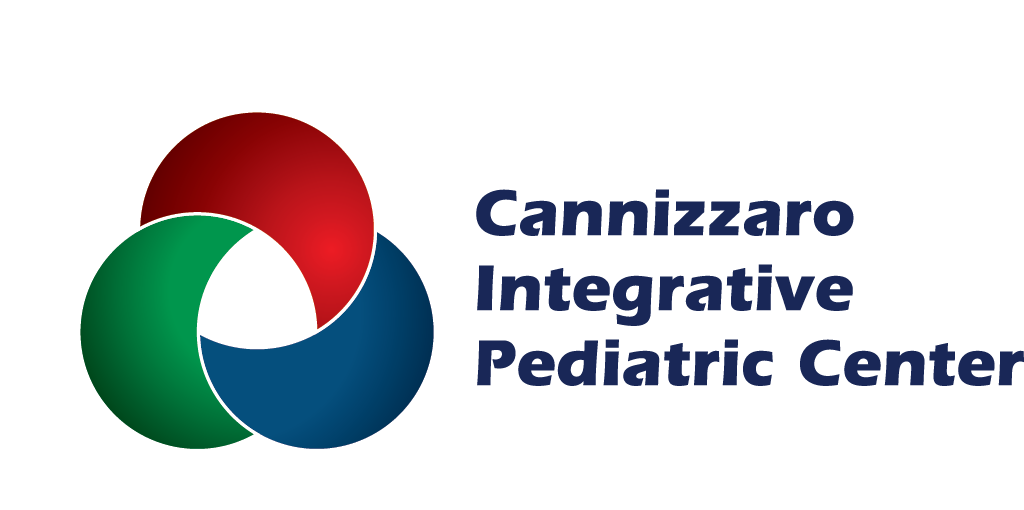
Neurological disorders in children — including ADD, ADHD and anxiety — are rising. Chronic ailments like allergies and eczema are also increasing in kids. In the title of Dr. Cannizzaro’s book, Answers for the 4-A Epidemic: Healing for Kids with Autism, ADHD, Asthma and Allergies, you’ll notice Dr. Cannizzaro calls this rise an epidemic. It makes sense that a pediatrician of over 30 years would notice this rise more than anyone else.
What is going on here? Why are our children so sick? There are a lot of factors that contribute to this, not just one. Even if you’ve been aware of this trend, there may be a few things you haven’t heard. We’re here to empower you with the latest knowledge you need to help your child heal and prevent conditions from worsening. Take a look at these three little-known facts:
1. Toxins Contribute to Neurological Disorders in Children
Environmental toxins and the inflammation they cause in the body are a major factor in the increase of neurological disorders in children. Toxins are everywhere. They are in the air we breathe, the water we drink, and the food we eat.
Chemicals surround us and are labeled “safe for use” on their own, but not enough studies have been done to show how damaging multi-chemical exposure can be. A famous study conducted by the Environmental Working Group found an average of 232 chemicals in the umbilical cord blood of 10 babies. The toxic load of the mother passes through to a fetus whose brain and organs have not even fully developed yet.
Personal care products like shampoo and lotion, and even laundry detergent contain specific toxins called petrochemical solvents. Petrochemicals are fat-soluble, which means they dissolve in fat. And guess what — our brains are at least 60% fat! You can see why petrochemicals are an especially dangerous neurotoxin. Neurotoxins cause inflammation in the brain. There is a link between neurotoxins, inflammation in the brain, and neurological disorders in children. The Child Neurology Foundation also includes alcohol, lead, mercury, tobacco and food additives in the list of toxins that can damage a child’s brain.
Avoiding toxins goes a long way in preventing many diseased states. Using natural personal care products and watching labels on foods are two ways to avoid toxins. Eating organic as much as possible can help. The Environmental Working Group put out yearly lists of the “Dirty Dozen” and “Clean Fifteen” each year. These lists can help prioritize organic versus conventional fruits and vegetables so that you can maximize your budget, buying the safest foods that you can afford. Later, we’ll talk about why foods are so important to naturally treating neurological disorders in children.
2. There are Difficulties in Diagnosing Neurological Disorders in Children
The symptoms of ADHD, learning disabilities, and other neurological disorders in children can appear the same, which can lead to misdiagnosis or improper or ineffectual treatment of these conditions. For example, attention problems could be due to ADHD, anxiety, sensory integration disorder, vision problems, boredom, sleep disorders, nutritional deficiencies, or toxin overload.
Learning disabilities are often confused with ADHD. Children with learning disabilities and ADHD exhibit symptoms like learning fatigue, resistance to doing homework, inability to do homework, inattention, or poor organizational skills.
In normal circumstances, your nervous system processes what you see, hear and feel into appropriate responses by your body. Sensory processing disorders happen when the nervous system cannot process information correctly. Again, some of the symptoms are much like ADHD or learning disabilities. Find out more about sensory processing disorders in our previous blog article.
Anxiety in children can be masked by other disorders. It has been estimated that 25% of children between ages 10 and 18 have anxiety issues. Children with anxiety disorder tend to perform badly in school and are more susceptible to drug use.
There are specific professionals that can help diagnose your child correctly (this includes developmental-behavioral pediatricians, psychologists, psychiatrists, speech and language pathologists, occupational therapists, special education teachers, and possibly geneticists). Of course, in our office, we can make recommendations to the appropriate specialist. As functional-integrative pediatricians, we order and interpret laboratory studies on nutrition, neurotransmitters and hormones to rule out deficiencies or abnormalities that may contribute to symptoms.
3. The Immune System – Gut – Brain Connection Impacts Neurological Disorders in Children
We all know the immune system protects us from disease. And our gut health is extremely important, as it houses the majority of our immune system. More and more research is confirming the inter-relationship between the gut, brain and immune system. It was previously thought that immune cells carried by your lymphatic system stopped short of the brain, but researchers have proven otherwise.
What is the takeaway of all this? The immune system, gut and brain are inextricably linked. This plays well into the role of a holistic functional-integrative pediatrician: to take all body systems into account, treat your child as a whole, and get to the root cause of symptoms.
Natural Treatments for Neurological Disorders in Children
Pharmaceuticals, and their accompanying side effects, make up conventional medicine’s answers to today’s epidemic of neurological and chronic disorders. As functional-integrative pediatricians, we have many natural treatments available that address the root cause of disease.
We believe that food is medicine. Most Americans’ diets are deficient in vitamins, amino acids, enzymes, and anti-oxidants. A diet high in processed foods and/or sugar increases inflammation in the body and destroys the integrity of the gut lining. As we mentioned, this leads to a compromised immune system and affects brain health. An anti-inflammatory diet with the proper nutrition and appropriate supplementation is a giant step toward maintaining overall health, but especially gut health and a strong immune system.
Secondly, the special testing we do for our patients may reveal nutritional or functional causes of symptoms. Addressing disease from this angle helps you correct imbalances in the body and assist the body in healing.
There are three basic steps to guide you when you have concerns about your child’s health: 1) Don’t ignore your concerns! 2) Get a correct diagnosis. 3) Follow an effective treatment protocol (often, it will take time to see what works, so don’t lose hope).





